 Well, this is all very exciting. Tim Lewis of the BeginSelfPublishing podcast asked me to talk about author events; what I’d done, how to get speaking gigs and practical tips for doing them. Well, this is all very exciting. Tim Lewis of the BeginSelfPublishing podcast asked me to talk about author events; what I’d done, how to get speaking gigs and practical tips for doing them.
I was flattered to be asked, given his previous line-up of guests, but very pleased to pass on what I’d learned.
Click to listen!
We discussed:
- How did you get your first speaking engagement as an author?
- Have you been paid for any of these author events?
- Does it help to have contacts with other authors in terms of getting booked for author speaking events?
- What has been the most difficult event you have spoken at and what did you learn from it?
- What advice would you give to people who would be nervous at speaking at author events?
And do you have any tips to add?
Updated 2024: Alison Morton is the author of Roma Nova thrillers – INCEPTIO, CARINA (novella), PERFIDITAS, SUCCESSIO, AURELIA, NEXUS (novella), INSURRECTIO and RETALIO, and ROMA NOVA EXTRA, a collection of short stories. Audiobooks are available for four of the series. Double Identity, a contemporary conspiracy, starts a new series of thrillers. JULIA PRIMA, Roma Nova story set in the late 4th century, starts the Foundation stories. The sequel, EXSILIUM, is now out.
Download ‘Welcome to Alison Morton’s Thriller Worlds’, a FREE eBook, as a thank you gift when you sign up to Alison’s monthly email update. You’ll also be among the first to know about news and book progress before everybody else, and take part in giveaways.
If you enjoyed this post, do share it with your friends!Like this:Like Loading...
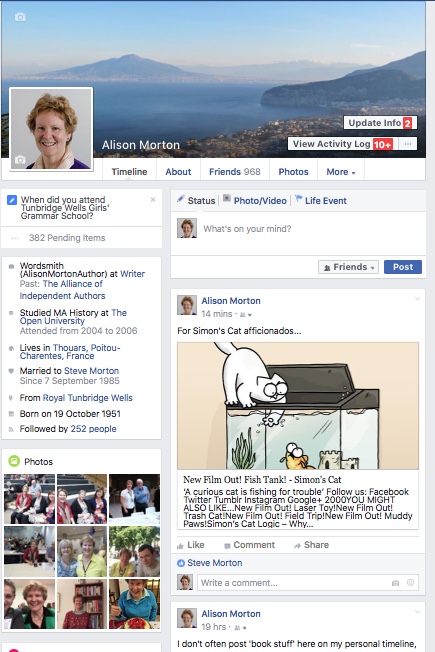 I’ve never had so many friends, just under a thousand. I have Close Friends, Friends, Acquaintances, I can follow them or not, I can Poke them and Add them to one of the groups I belong to (very bad form). I’ve never had so many friends, just under a thousand. I have Close Friends, Friends, Acquaintances, I can follow them or not, I can Poke them and Add them to one of the groups I belong to (very bad form).
I can invite them to my Author page. I can Like, Love, go Haha, Wow, be Sad or Angry at their posts, and Comment on and Share their posts. In short, there is no end to interaction.
But are they true friends?
And do I need so many?
Yes and no to both.
So who are my Facebook friends?
– pre-Facebook friends (Was there such a time?) who have joined subsequently. A pleasure to see them there.
– Friends whom I met at an event or just socially. Afterwards, we fumbled around through the Facebook labyrinth and found each other. Excellent to meet up virtually
– Friends whom I made on Facebook and subsequently met – that’s a whole other experience! The best!
– Friends I have come to know well, but whom it is very unlikely I will meet in the flesh. Solid friends
– Other friends who share the same interests, who chat but would be usually called acquaintances in RL (real life, i.e. the physical world). What a great time we have!
– Requests from slightly strange people of dubious character, possibly spammers, but I think often lonely people or maybe plain weirdos. No, thanks
– Opportunists. They’re the ones who ‘befriend’ you, then send you a DM flogging their book/sunglasses. Block.
So what does Facebook do for me personally?
It lets me:
– talk to people I like across five continents
– laugh at, applaud or despair at humanity
– watch a lot of cat videos
– learn about things I wouldn’t otherwise know about
– meet people I would never otherwise know
Facebook can be a short cut in friendship. We all experience that slightly spooky feeling of meeting a FB friend in RL, but a lot of the preliminaries are done. When you go back to Facebook afterwards, your friendship is richer and closer.
And professionally?
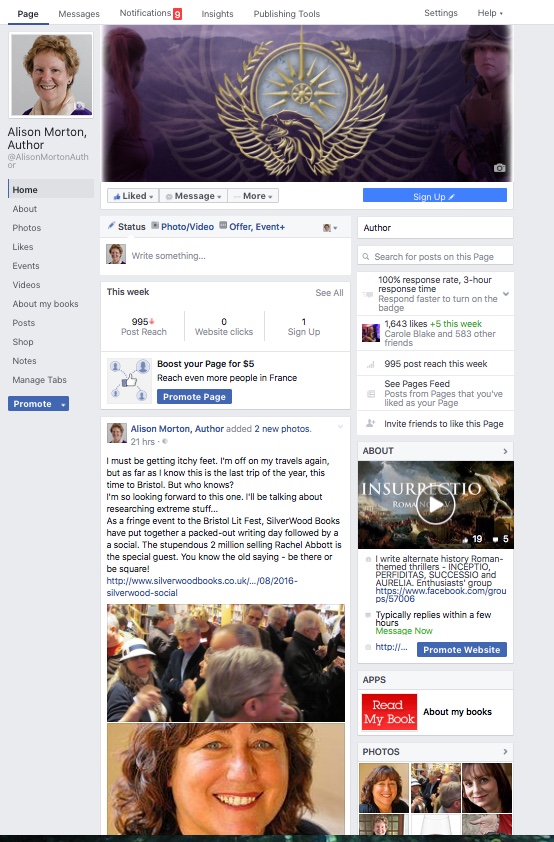 Through my author page I can post about my Roma Nova books, background articles, writing and publishing topics, quirky book videos and about book writing progress. Most of all, I can interact with readers and fans. Through my author page I can post about my Roma Nova books, background articles, writing and publishing topics, quirky book videos and about book writing progress. Most of all, I can interact with readers and fans.
It’s a very sad fact, but not every one of my friends in my personal profile is necessarily interested in my books (cue sobbing and violins), so using my author page means I can separate the two lots of friends.
Those interested in France, cats, wine, rants and quirks can be safe on my personal profile while those keen to follow Roma Nova, writing progress, Roman discoveries, rants about apostrophes, special offers and events can follow my author page. Happiness all round! However, I’m flattered that almost all my personal friends have ‘liked’ my author page! Now to get them all to buy a book or two… 🙂
But (here it comes...) like all social media, Facebook is an enhancer, rather than a substitute for real contact. It’s addictive, entrancing, baffling and annoying as well as a time suck. But I’ve had some terrific conversations simultaneously in UK, Australia and the US from my home in rural France or trundling in a train across the wilds of Oxfordshire.
While it’s a good slave, it’s a bad master. I love it while I’m on there, but I restrict it to specific times in the day. After all, work must be done and Real Life is what counts.
Alison Morton is the author of Roma Nova thrillers, INCEPTIO, PERFIDITAS, SUCCESSIO and AURELIA. The fifth in the series, INSURRECTIO, was published in April 2016.
Find out more about Roma Nova, its origins, stories and heroines…
If you enjoyed this post, do share it with your friends!Like this:Like Loading...
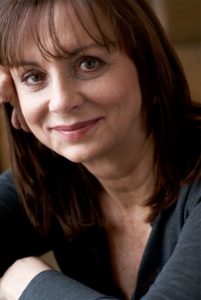 Continuing the ‘Love me, love my character’ series, I’m delighted to welcome back to the blog Elizabeth Buchan; she very kindly answered a newbie blogger’s questions with much patience and grace. Elizabeth Buchan began her career as a blurb writer at Penguin Books after graduating from the University of Kent with a double degree in English and History. She moved on to become a fiction editor at Random House before leaving to write full time. Her novels include the prizewinning Consider the Lily. A subsequent novel, Revenge of the Middle-Aged Woman became an international bestseller and was made into a CBS Primetime Drama. Later novels included Separate Beds, Daughters and I Can’t Begin to Tell You, a story of resistance in wartime Denmark. Her latest, The New Mrs Clifton, is set in London and Berlin in 1946. Continuing the ‘Love me, love my character’ series, I’m delighted to welcome back to the blog Elizabeth Buchan; she very kindly answered a newbie blogger’s questions with much patience and grace. Elizabeth Buchan began her career as a blurb writer at Penguin Books after graduating from the University of Kent with a double degree in English and History. She moved on to become a fiction editor at Random House before leaving to write full time. Her novels include the prizewinning Consider the Lily. A subsequent novel, Revenge of the Middle-Aged Woman became an international bestseller and was made into a CBS Primetime Drama. Later novels included Separate Beds, Daughters and I Can’t Begin to Tell You, a story of resistance in wartime Denmark. Her latest, The New Mrs Clifton, is set in London and Berlin in 1946.
Elizabeth Buchan’s short stories are broadcast on BBC Radio 4 and published in magazines. She reviews for the Sunday Times and the Daily Mail, and has chaired the Betty Trask and Desmond Elliot literary prizes. She was a judge for the Whitbread First Novel Award and for the 2014 Costa Novel Award. She is a patron of the Guildford Book Festival and of The National Academy of Writing, and sits on the author committee for The Reading Agency.
Welcome Elizabeth! Do tell us why you wrote this book
Just after the Second World War, my aunt married a German who she had met before its outbreak. I was not around but I imagine it caused shock waves on both sides of the family. For the novel, I decided to reverse the situation and have Gus, an intelligence officer, returning from Berlin in 1945 to his family house in London with a German bride. Why has he done this? The answer is a lot to do with what war does to men and women, both on the battlefield and on the home front which is what the novel is about.
Why do you think your main characters are like they are?
I have two main characters; firstly, Krista, the traumatized German girl. Until the war, she is making her way, perhaps not thinking very hard about politics and society. After the war, she is left traumatised but with an iron-hard certainty. That is: she is going to survive, whatever it takes. Whereas the English Gus who marries her encounters the worst aspects of human beings in the war and discovers that he can be as guilty of moral slippage as any.
What do your characters think they are like?
Her experiences teach Krista that, whatever it takes, she is capable of hanging on. She also feels that the real Krista has disappeared, blown away by trauma and violence. Is she correct? Gus imagines that his views on morality and honour will hold fast during the war. It takes him aback to find that they do not. How will he retrieve his former certainties is something which preoccupies him.
Yes, war forces us to look inside at our core and sometimes we discover we’re not as we think we are.
So who is The New Mrs Clifton?
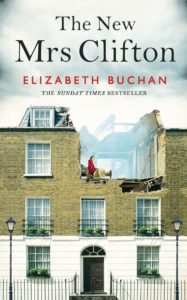 As the Second World War draws to a close, Intelligence Officer Gus Clifton surprises his sisters at their London home. But an even greater shock is the woman he brings with him, Krista – the German wife whom he has married secretly in Berlin. As the Second World War draws to a close, Intelligence Officer Gus Clifton surprises his sisters at their London home. But an even greater shock is the woman he brings with him, Krista – the German wife whom he has married secretly in Berlin.
Krista is clearly devastated by her experiences at the hands of the triumphant allies – all but broken by horrors she cannot share. But Gus’s sisters can only see the enemy their brother has brought under their roof. And their friend Nella, Gus’s beautiful, loyal fiancée, cannot understand what made Gus change his mind about their marriage. What hold does Krista have over their honourable and upright Gus? And how can the three women get her out of their home, their future, their England?
Haunted by passion, betrayal and misunderstanding these damaged souls are propelled towards a spectacular resolution. Krista has lost her country, her people, her identity, and the ties that bind her to Gus hold more tightly than the sisters can ever understand…
********************
‘So so good. Great writing, great story. I could not put it down.’
– Marian Keyes
‘Compassionate and gripping’ – Fanny Blake, Woman and Home
‘With vivid historical details and a twist in the tale, The New Mrs Clifton is a gripping, immensely satisfying novel’ – Red
********************
Buying links: Amazon UK Amazon US
Connect with Elizabeth: Website Twitter @elizabethbuchan
Alison Morton is the author of Roma Nova thrillers, INCEPTIO, PERFIDITAS, SUCCESSIO and AURELIA. The fifth in the series, INSURRECTIO, was published in April 2016.
Find out more about Roma Nova, its origins, stories and heroines…
If you enjoyed this post, do share it with your friends!Like this:Like Loading...
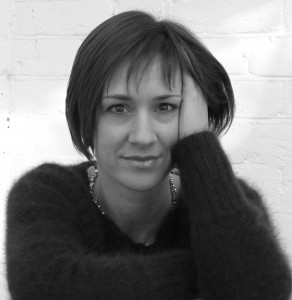 What a pleasure it is to welcome the talented Jane Davis back as my Thursday guest! Jane is the author of seven novels. Her debut, Half-truths and White Lies, won the Daily Mail First Novel Award and was described by Joanne Harris as ‘A story of secrets, lies, grief and, ultimately, redemption, charmingly handled by this very promising new writer.’ The Bookseller featured her in their ‘One to Watch’ section. Six further novels have earned her a loyal fan base and wide-spread praise. Her 2016 novel, An Unknown Woman won Writing Magazine’s Self-Published Book of the Year Award. Compulsion Reads describe her as ‘a phenomenal writer whose ability to create well-rounded characters that are easy to relate to feels effortless.’ Her favourite description of fiction is ‘made-up truth’. What a pleasure it is to welcome the talented Jane Davis back as my Thursday guest! Jane is the author of seven novels. Her debut, Half-truths and White Lies, won the Daily Mail First Novel Award and was described by Joanne Harris as ‘A story of secrets, lies, grief and, ultimately, redemption, charmingly handled by this very promising new writer.’ The Bookseller featured her in their ‘One to Watch’ section. Six further novels have earned her a loyal fan base and wide-spread praise. Her 2016 novel, An Unknown Woman won Writing Magazine’s Self-Published Book of the Year Award. Compulsion Reads describe her as ‘a phenomenal writer whose ability to create well-rounded characters that are easy to relate to feels effortless.’ Her favourite description of fiction is ‘made-up truth’.
Jane lives in Carshalton, Surrey, with her Formula 1 obsessed, beer-brewing partner, surrounded by growing piles of paperbacks, CDs and general chaos. When she is not writing, you may spot Jane disappearing up the side of a mountain with a camera in hand.
Welcome, Jane! You are now releasing your seventh novel, but when did you feel you could call yourself a writer?
It was the agent who first signed me who said, ‘Jane, you are a writer.’ For four years, the 90,000 word manuscript of my first (unpublished) novel had obsessed me, eating up all of my spare time. Being a ‘writer’ sounded so much more glamorous than being an insurance broker, but there’s an enormous leap from writing your first novel and having the confidence to call yourself a writer. I still thought of myself as someone who ‘dabbled’. I left school at the age of sixteen with a handful of O’ Levels, and I’ve never managed to shake off the nagging fear that I’m going to be found out. I don’t think the doubt ever goes away, but you find a way to channel it. Rather like making use of nerves when you speak in public.
Do you set any rules for yourself when writing?
I have only three rules. Whatever my subject-matter, the end-product must be honest, credible and authentic.
Talk us through your writing process…
I never write an outline, but I don’t see the alternative as ‘winging it’. I am a ‘gradual layer-er’, and that takes time. With the exception of Half-truths and White Lies, which virtually wrote itself, none of my published novels bear any resemblance to their early drafts.
I like George R R Martin’s quote: ‘I’ve always said there are two kinds of writers. There are architects and gardeners. Architects do blueprints before they drive the first nail, they design the entire house, where the pipes are running and how many rooms there are going to be, how high the roof will be. But the gardeners just dig a hole and plant the seed and see what comes up.’
Personally, I think there are more than two types of writers. I want to be Mary Anning scouring the beaches at Lyme Regis for dinosaur fossils, or Howard Carter discovering the tomb of Tutankhamun, or metal detectorist Terry Herbert digging up the Staffordshire Hoard. What I don’t want to be is a parent deciding on my child’s future, telling my son which subjects he will study, arranging my daughter’s marriage.
Every time you introduce a new angle, each ‘what if?’ question has to be pushed to its limits. Setting material aside and revisiting it allows for greater objectivity. You have to analyse what isn’t working any why, then once you have the structure you go back and make every page shine. The pivotal moment of a novel may not actually reveal itself until several edits in, or until an editor comments, ‘I see the point that you were trying to make.’
I’m afraid readers who imagine that words show up in the eventual order that they appear on the page of any novel is usually mistaken. In some ways, the novel in its final form is the rabbit pulled out of the hat.
You interview a lot of authors. Which author interview has been your favourite?
I sent a cheeky email to John Ironmonger after reading his novel, The Coincidence Authority, never dreaming that he would reply, but I told him I thought he was the British John Irving and apparently he was very pleased with that. Since then, he has published his third novel, Not Forgetting the Whale. It’s such a perfect piece of writing that I think it’s probably the better introduction to his work. Its main character is a City hotshot who runs away to an isolated Cornwall village in the mistaken belief that he was responsible for a financial crash. Think Local Hero, Whiskey Galore! or 1000 Acres of Sky and you’ll have an idea of feel of the book.
What’s the story behind your latest book?
My Counterfeit Self tells the story of a radical poet and political activist called Lucy Forrester. She’s a cross between two great British eccentrics, Edith Sitwell and Vivienne Westwood. Having been anti-establishment all of her life, Lucy is horrified to find that she’s been featured on the Queen’s New Year’s Honours list. To be honest, the idea of writing about the life of a poet came from reader reviews. Several commented that my prose was like poetry. I had no idea if I could actually write poetry but this gave me confidence that I might be able to convince readers that I could see the world as a poet does.
Where does it sit with the rest of your work?
I’m excited by cause and effect and unconventionality in all its forms. I like to write about big subjects and give my characters impossible moral dilemmas. I’ve packed it with those!
What are the things that have shaped Lucy Forrester?
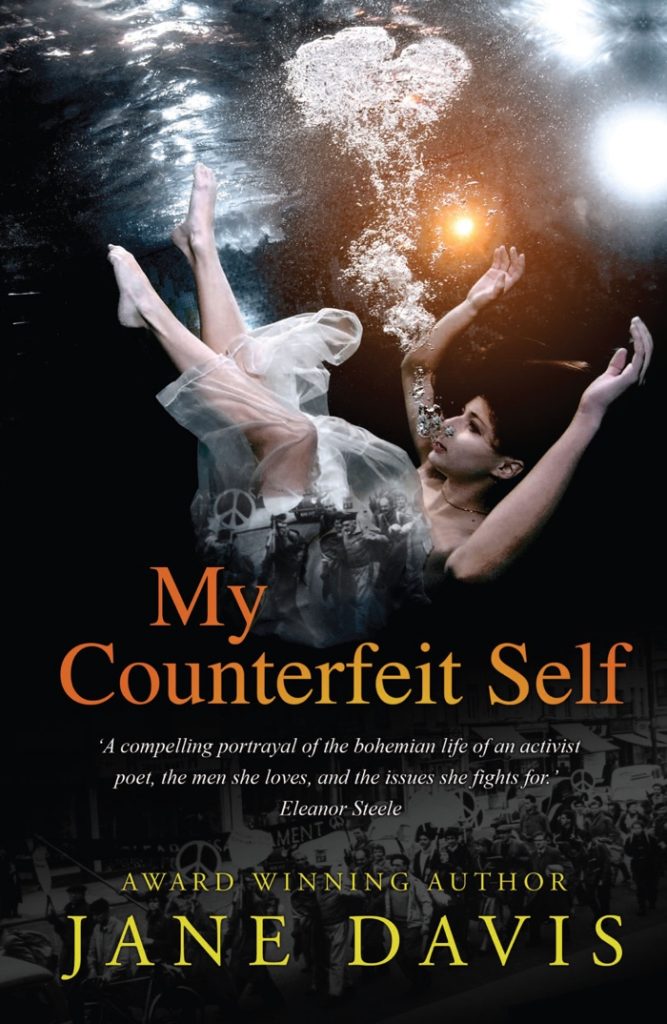 At the age of nine, Lucy was struck down by polio. With any extended childhood illnesses, the child is set apart, both literally and figuratively. Staring death in the face defines a person, whatever their age. Although she isn’t paralysed, Lucy has that same stubborn determined streak that Roosevelt displayed when he refused to accept the limitations of his disease. The refusal to wear leg braces, to face the world sitting down. She’s looked at differently by family and friends. And, of course, she has to draw on tremendous inner reserves. At the age of nine, Lucy was struck down by polio. With any extended childhood illnesses, the child is set apart, both literally and figuratively. Staring death in the face defines a person, whatever their age. Although she isn’t paralysed, Lucy has that same stubborn determined streak that Roosevelt displayed when he refused to accept the limitations of his disease. The refusal to wear leg braces, to face the world sitting down. She’s looked at differently by family and friends. And, of course, she has to draw on tremendous inner reserves.
Then there is her wonderful governess, Pamela, who responds to her father’s comment that she should be encouraged to do a little light reading by having her read the newspapers, and then teaches her the invaluable lesson that just because something is legal, doesn’t necessarily mean it is right.
There is also the behaviour of her parents. Lucy discovers a trail of betrayals so awful that she no longer feels any sense of duty to live up to their expectations, or to comply with their outdated notions of convention and morality. And that’s not to say Lucy isn’t moral, but she invents her own moral code.
And of course, she meets the two men who will become central to her life – Dominic Marchmont who becomes both her literary critic and on/off lover, and the photographer Ralph who provides her with a sort of stability and security that’s she’s never experienced before. Theirs is the real love story as far as I’m concerned.
Thank you for stopping by, Jane, and good luck with My Counterfeit Self!
You can buy My Counterfeit Self in the following ways:
eBook: https://books2read.com/u/3kZveg paperback: http://amzn.to/2eeR22j
‘A compelling portrayal of the bohemian life of an activist poet, the men she loves, and the issues she fights for.’ ~ Eleanor Steele
Completely gripping, excellently written and so skilfully put together, I can’t recommend My Counterfeit Self highly enough ~ Isabel Wolff, author of Ghostwritten
Connect with Jane: website Facebook Twitter @JaneDavisAuthor Goodreads Amazon Author Page
Alison Morton is the author of Roma Nova thrillers, INCEPTIO, PERFIDITAS, SUCCESSIO and AURELIA. The fifth in the series, INSURRECTIO, was published in April 2016.
Find out more about Roma Nova, its origins, stories and heroines…
If you enjoyed this post, do share it with your friends!Like this:Like Loading...
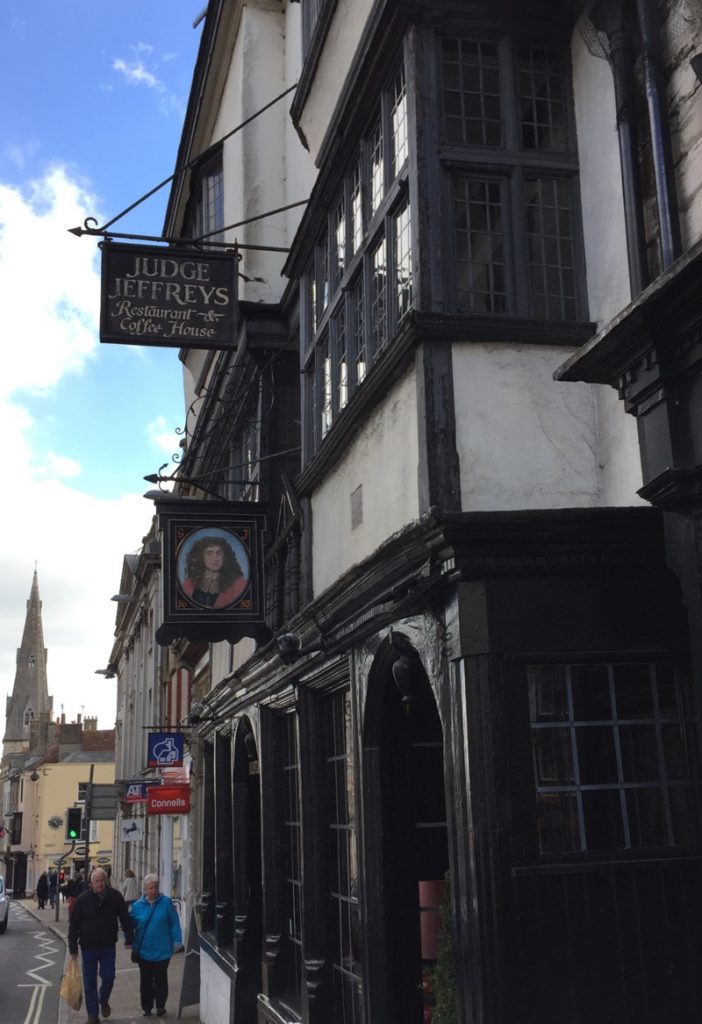 Former site of Judge Jeffreys assize Last month I was in Dorchester for a few days’ writing retreat. The theory is that you concentrate on writing without distraction. But you also talk about writing and compare notes with other writers over meals, and even visit a few writing related places. The sitting muscles become cramped otherwise.
Dorchester is an old town. The area around the town was settled in prehistoric times, it became a Roman garrison and civilian town of Durnovaria complete with an aqueduct and amphitheatre, and developed later into an important commercial and political centre.
Judge Jeffreys presided over the “Bloody Assizes” after the Monmouth Rebellion, and the Tolpuddle Martyrs were put on trial in Dorchester. For many years the town was the home and inspiration of the author Thomas Hardy, whose novel The Mayor of Casterbridge uses a fictionalised version of Dorchester as its setting.
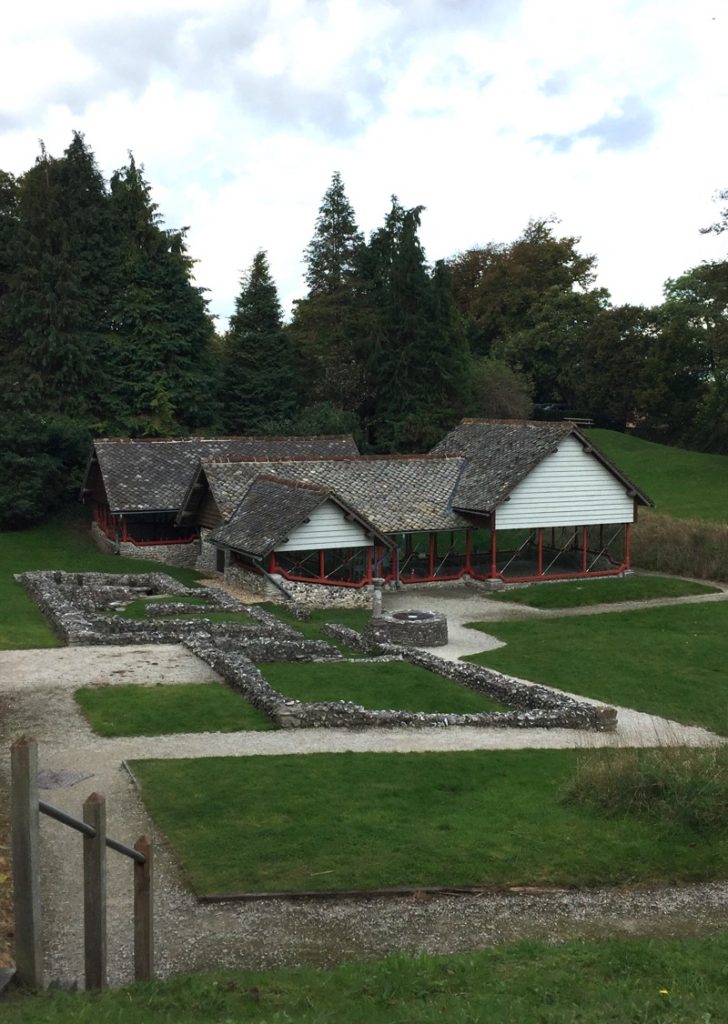 Dorchester Roman House 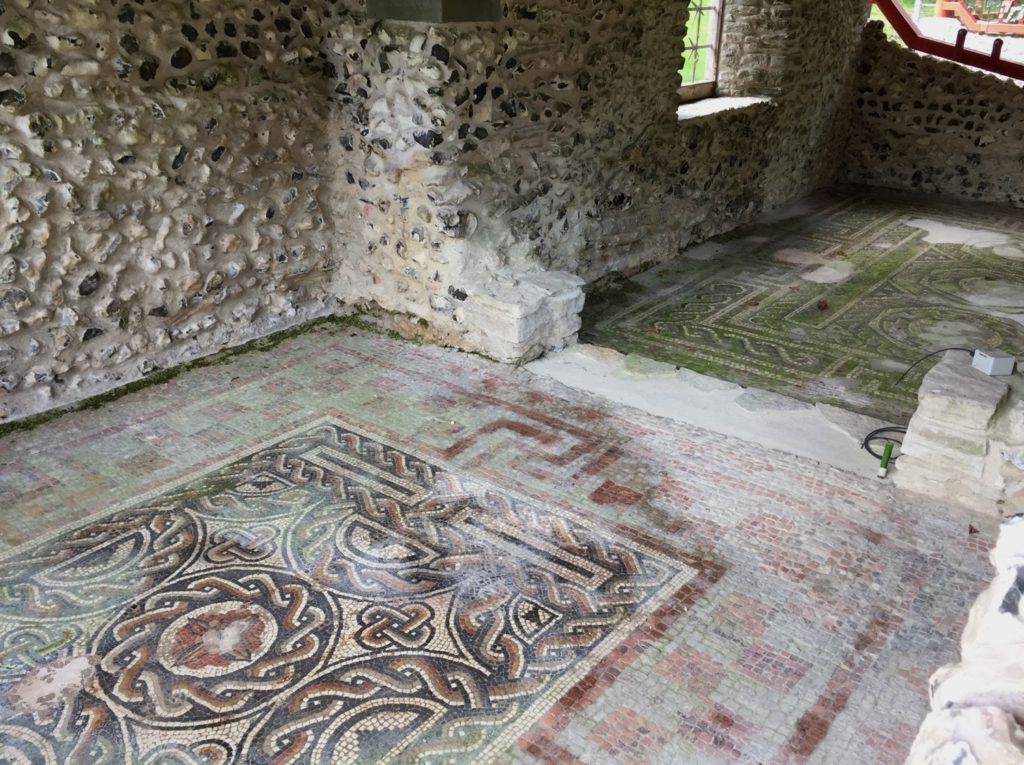 Mosaics at Dorchester Roman House In brief, a lot happened there. For writers, visiting a site in such a place, even ruins, can give a glimpse into past people’s lives. What you see are the same mosaics Romans walked on, spilt drinks on, admired nearly two thousand years ago.
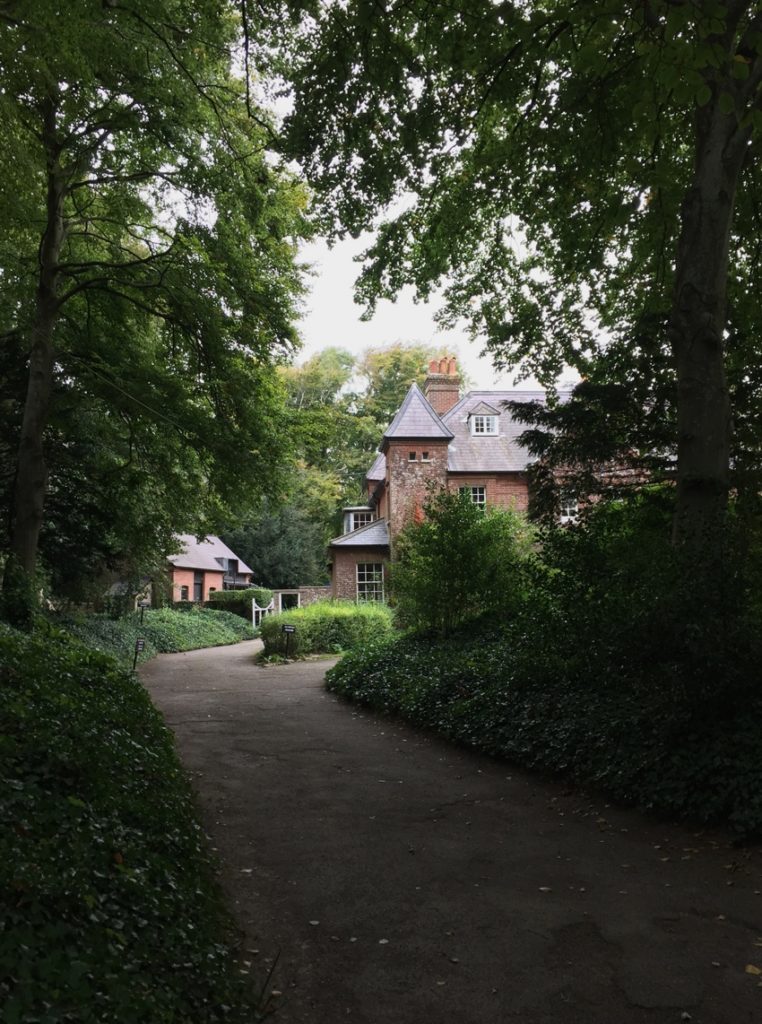 Max Gate, Thomas Hardy’s Gothic house Max Gate, the atmospheric house Thomas Hardy designed himself in 1885, is where he wrote some of his most famous novels, including Tess of the d’Ubervilles and Jude the Obscure, as well as most of his poetry. Seeing his writing desk with its leather covered and brass studded chair in front of a large sectional window looking out onto trees can’t fail to convey the sense of his writing life.
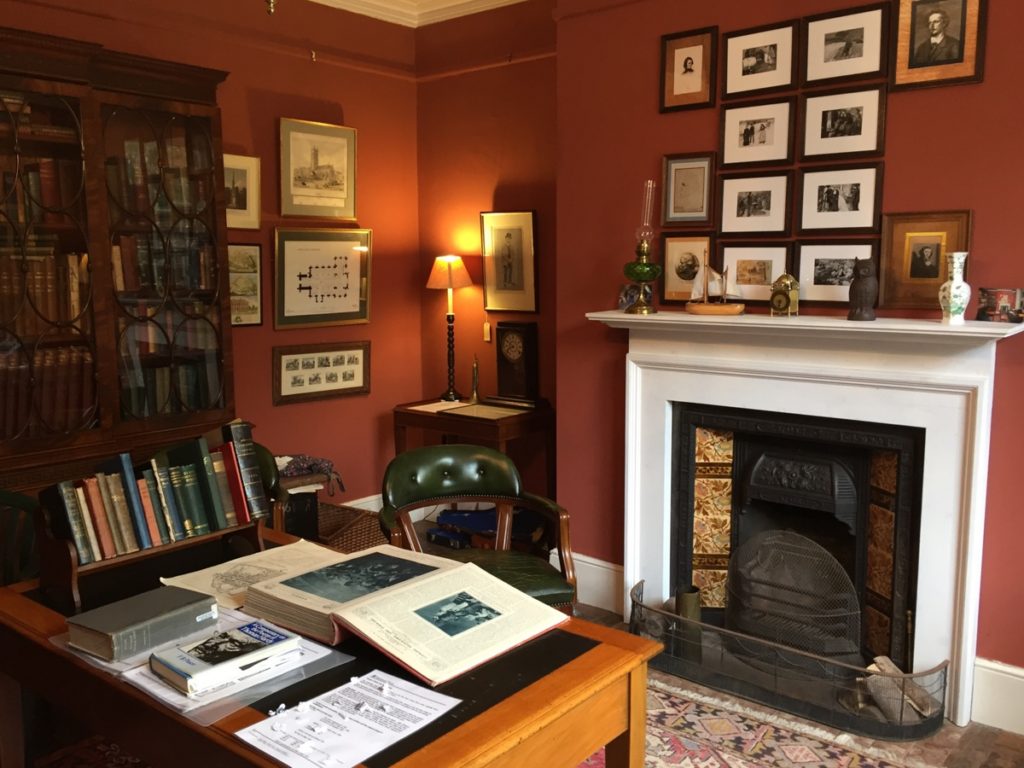 Hardy’s (recreated) study at Max Gate So how do you take best advantage of a ‘site visit’? Prepare well. Look up the directions, opening hours, car parking and refreshment possibilities. With all that sorted out, you can focus on the place itself. Give yourself time to walk round the whole site before you go in. What is the landscape that surrounds it? Open fields, woods, streets? Is it crowded or deserted? Are there roads and tracks that connect it, or signs of older paths and bridleways? And perhaps there’s a river, ponds, lakes or the sea. What does the site smell of, even in 2016? Sea, rotting vegetation, grass, stone, nothing? Is it open and bright or dark, brooding almost sinister? What do you see if you turn your back on the site? Rolling countryside, a stone built harbour, narrow lanes, castle ramparts? And would a Roman/medieval peasant/ Victorian poet/Second World War sailor have seen the same?
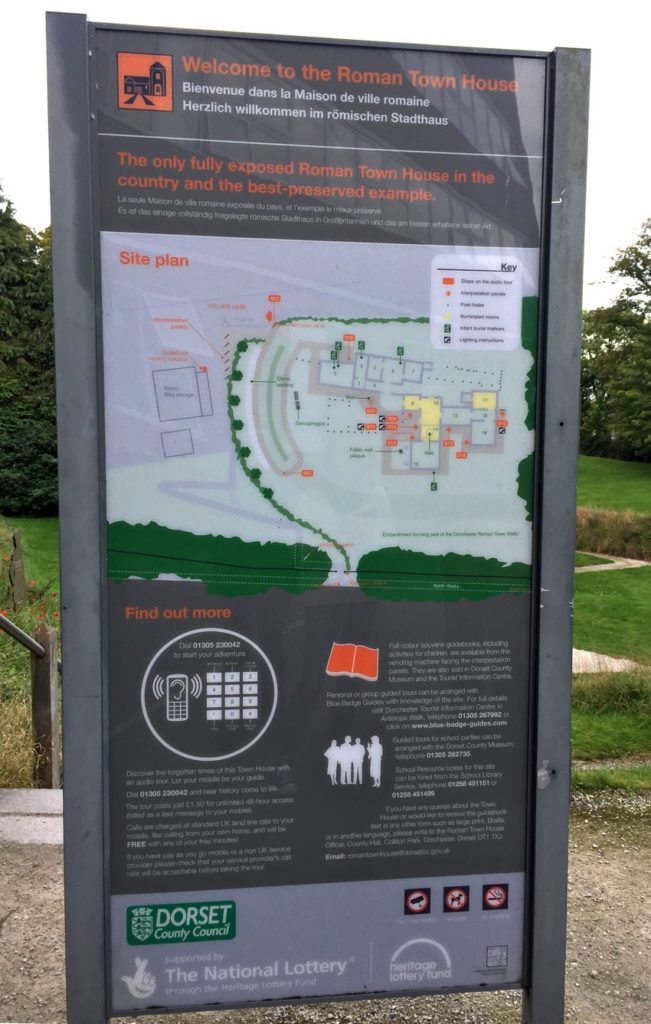 Once inside your site, read all the notices. Most give you excellent information in digestible lumps. Look at everything carefully and individually and talk to any stewards or staff. Jot things down in a notebook and take photos. Touch the walls and objects (if you are allowed to). And don’t be hurried along. Whether you’re in a ruined castle, stately home, or in a First World War trench in France or Belgium, stop for a few moments and shut your eyes. Once inside your site, read all the notices. Most give you excellent information in digestible lumps. Look at everything carefully and individually and talk to any stewards or staff. Jot things down in a notebook and take photos. Touch the walls and objects (if you are allowed to). And don’t be hurried along. Whether you’re in a ruined castle, stately home, or in a First World War trench in France or Belgium, stop for a few moments and shut your eyes.
Take a deep breath and imagine the people living at the time it was occupied. Did they do back-breaking work in a soggy clay field for twelve hours, scrub their hands raw washing the mistress’s clothes, run up the guardhouse stairs to the rampart when the enemy hoved in sight, or play a lute to a sooth a fractious master’s bad temper at being refused an advantageous marriage alliance? Or perhaps they were a rich Roman merchant or administrator taking a cup of Falernian the slave brought theim at the end of a day’s work in Durnovaria?
When you start imagining people’s daily lives in the place, you will start to feel the atmosphere. After a while you could become distracted, even immersed by re-creating their existence in your mind. Yes, you have your notes and photos, but having seen evidence of the lives of people who walked on those flagstones, drew water at that well, used those trade counters, wrote at that desk, you feel sympathy with and even a bond with them. Then it can overwhelm you.
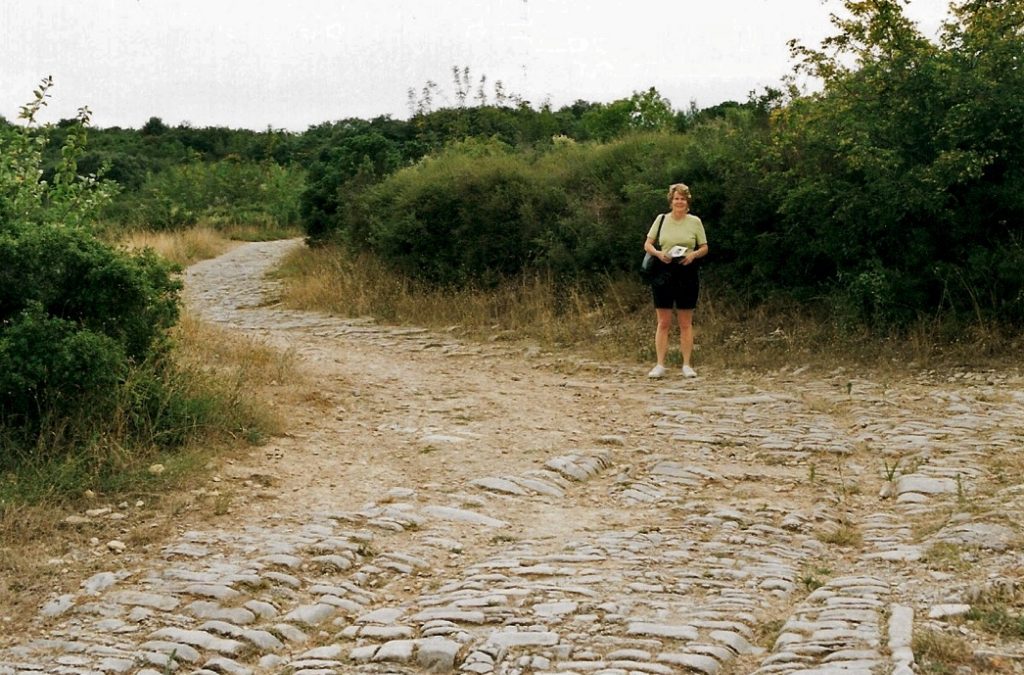
I’ve stood on Roman roads or in a forum or by a temple steps and completely lost my feeling of the present. I’m there, stepping out of the way so a cart or a imperial courier doesn’t run me down, or I don’t get jostled by the crowd listening to a speech from the rostra. or my waist belt pocket picked by some scruffbag from the Subura.
Every time you deliberately re-imagine people’s lives through their things that have survived, the more this feeling seizes hold of you. The next time you go to another place where people have lived in the past, you will walk into that world without thinking about it.
Am I a little deranged, or do you do this too?
Alison Morton is the author of Roma Nova thrillers, INCEPTIO, PERFIDITAS, SUCCESSIO and AURELIA. The fifth in the series, INSURRECTIO, was published in April 2016.
Find out more about Roma Nova, its origins, stories and heroines…
If you enjoyed this post, do share it with your friends!Like this:Like Loading...
|
Subscribe to Blog via Email
Join 50 other subscribers.
Categories
Archive
|
 Well, this is all very exciting. Tim Lewis of the BeginSelfPublishing podcast asked me to talk about author events; what I’d done, how to get speaking gigs and practical tips for doing them.
Well, this is all very exciting. Tim Lewis of the BeginSelfPublishing podcast asked me to talk about author events; what I’d done, how to get speaking gigs and practical tips for doing them.






















